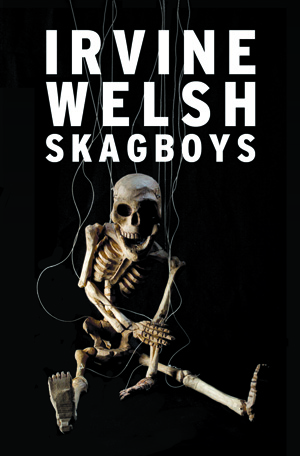I’ll be honest: Skagboys by the Scottish novelist Irvine Welsh (most famous, I think, for his 1993 book Trainspotting — the one that got made into a movie with Ewan McGregor and — Welsh himself as Mikey Forrester) is the only book I’ve read for pleasure since the school year started. This is for a few reasons, the first and foremost being the mountain of work that we all know and love. Even as the bookstore cashier was ringing Skagboys up I was thinking: pleasure reading? really? when are you going to have time for that? Answer: I didn’t.
Then there was Welsh’s own writing style. Like many of his books, much of Skagboys is written phonetically in Scottish dialect. This makes the text into a sort of code that I had to crack to get to the story — simple thoughts and narration turning into a mishmash of noises, like when I look at a sentence like “Ah ken that once ah git movin ah’ll be fine, even though ah’m a bit scruff over” and thinking, “what? just . . . what?” But no matter how tough to decipher, the language got my heart pumping — it carries the roughness, the sweetness, the anger, and desperation of the characters in a way that dictionary English never could. It gives you their heart, delivered in their native tongue.
So how did Trainspotting’s Leith laddies become . . . well, the Skag Boys? “Ah know that this is crossin a line,” Mark Renton breathes to us in the moment before the first shot — “Say no . . . say naw . . . NAW, NAW, NAW . . .” But all it takes is from someone else to “just say ‘aye,’” and he’s on the tracks. They all are. Renton, Sick Boy, Spud, and Begbie: all our favorite boys from Trainspotting. Though the book is a prequel to Welsh’s ’93 bestseller, you don’t need to know the lads to fall into their story headlong. Welsh lays it all bare for you in their own words — thoughts pulled from their minds and their rehab journals (and, once in a while, from the Notes on an Epidemic which tracks heroin’s quick spread through all of Thatcher-era Edinburgh and Scotland). This book doesn’t lean a bit on the success of Trainspotting: the characters are flawed and full, and the storytelling is masterful.
Our time is limited — by school, by friends, by work. But if you’ve got a moment to read only one book for pleasure . . . just say ‘aye.’


